The SAFSF Policy Committee helps develop, execute and evaluate our policy programming, applies our policy filter tool to potential policy activities and engagements, and champions agriculture and food system policy conversations within the broader SAFSF membership and within philanthropic and impact investment communities.
For information about serving on the Policy Committee, contact Executive Director, Clare Fox.
Purpose
The Policy Committee reviews and evaluates SAFSF’s policy engagement, makes recommendations to the board regarding longer-term policy strategy and provides guidance on the annual policy agenda and work plan, recommending modifications as needed. Committee members also champion policy conversations within the broader SAFSF membership.
Composition
The committee must include at least one director currently serving on the board. The committee may be chaired by a member of the board or utilize a co-chair model; if the latter, at least one of the co-chairs must be currently serving on the board. Additional members of the committee are not required to be SAFSF members but must bring a strong interest in or expertise in policy to their service on the committee.
Meeting Schedule
The committee meets four (4) times annually; one of which may be an in-person meeting. Committee members are also expected to regularly attend SAFSF policy events and other external meetings with policymakers and/or external partners which may include webinars, in-person convenings and meetings, or policy-specific sessions at the annual SAFSF Forum, customarily held in June.
2024 Members
Rudy Espinoza
Inclusive Action for the City
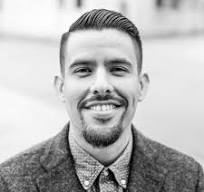
Rudy Espinoza is the Executive Director of Inclusive Action for the City, a community development organization designing innovations to responsibly revitalize low-income, urban areas. He specializes in designing economic development initiatives in low-income communities, researching the informal economy, building private/nonprofit partnerships, and training the working poor to participate in the socio-economic revitalization of their neighborhoods.
At Inclusive Action, he leads their advocacy efforts in support of the working poor and their micro-finance programs that support micro-entrepreneurs. Under his leadership, Inclusive Action helped legalize street vending in Los Angeles, has deployed over $500,000 in low-interest micro-loans to under-served entrepreneurs, and co-created a unique commercial real estate initiative that preserves small businesses in gentrifying neighborhoods.
He serves as the President of the East Area Planning Commission for the City of Los Angeles as well as the Board Chair of the LA Food Policy Council. He also serves on the Board of Directors of the Center for Nonprofit Management and the Advisory Boards of the LA Development Fund and Investing in Place. Rudy holds degrees in Business Administration and Urban Planning.
Josh Ewing
Rural Climate Partnership
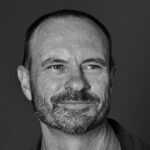
Josh Ewing leads the Rural Climate Partnership, a collaborative fund supporting working people, small businesses, and family farmers to implement rural-led climate solutions. RCP works to ensure rural communities have the tools and opportunities to benefit from all the economic and community benefits that flow from the transition to clean energy and regenerative agriculture.
Born and raised in western Nebraska where the Ewing family runs a grass-fed cattle ranch, Josh has lived and worked in rural America most of his life. With his wife Kirsten, Josh lives on the border of the Navajo Nation in the 150-person town of Bluff, Utah, where he serves as a volunteer firefighter and EMT.
Ethan Gallegos
First Nations Development Institute

Ethan Gallegos is a Lead Program Officer on First Nations Development Institute’s NAFSI program. In this role, he assists in the administration and implementation of First Nations’ Native agriculture and food systems projects. He served multiple roles as a lab technician in the Porter Microbiology lab and the CSEJ’s Food System Justice Action Research project while earning his BS in Environmental Science with a minor in American Indian Studies.
In addition to his work at First Nations, Ethan currently serves on the Regenerative Agriculture Foundations’ Restorying Regenerative Agriculture Selection Committee and the Better Food Policy Fund’s Independent Advisory Committee.
Ann Mills
Agua Fund
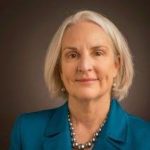
Ann Mills is Executive Director of the Agua Fund, a Washington DC-based foundation that supports work to protect the environment, boost civic engagement and help the disadvantaged and underserved. She previously served as the U.S. Department of Agriculture Deputy Under Secretary for Natural Resources and Environment from 2009 to January 20, 2017 where she had responsibility for the Natural Resources Conservation Service. She co-chaired of the federal National Drought Resilience Partnership and represented USDA on the Obama Administration’s ecosystem restoration initiatives including those in the Chesapeake Bay Basin, Great Lakes, Mississippi River Basin, and California Bay-Delta. She also served as Secretary Tom Vilsack’s designee to the Gulf Coast Ecosystem Restoration Council and the Natural Resources Damage Assessment Trustee Council for the Deepwater Horizon Oil Spill.
Ann also has held senior positions at American Rivers, and served as chief of staff to Senator Tom Daschle, legislative assistant to then-Representative Richard Durbin and chief of staff to California Lt. Governor Leo McCarthy. She earned a BA in Political Science from Tufts University and a Master of Public Administration from the Lyndon B. Johnson School of Public Affairs, University of Texas at Austin.
Julia McCarthy
NYHealth

As Senior Program Officer, Julia McCarthy helps lead NYHealth’s Healthy Food, Healthy Lives priority area, the goal of which is to create a more equitable food system that connects all New Yorkers with the food they need to thrive.
Prior to joining NYHealth, Julia served as the deputy director of the Laurie M. Tisch Center for Food, Education & Policy at Teachers College of Columbia University, where she oversaw operations, strategy, and project execution. Julia also held policy roles at the Center for Science in the Public Interest and the Natural Resources Defense Council.
Julia holds a Bachelor of Arts degree in History from Georgetown University and a Juris Doctor degree from New York University School of Law, where she was a Root-Tilden-Kern scholar.
Mark Muller
Regenerative Agriculture Foundation
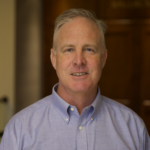
Mark Muller serves as the executive director at the Regenerative Agriculture Foundation. He came to RAF in March 2020 after spending over 20 years working on related issues including agricultural conservation, Midwest water quality, racial equity in the food system, and effective federal food and agricultural policy.
Mark served as director of the Mississippi River program at the McKnight Foundation, and prior to that he directed the Food & Community Fellows program at the Institute for Agriculture and Trade Policy. He also spent two years teaching high school in New York City and 18 months volunteering in Honduras and Guatemala. He and his spouse and three children live in south Minneapolis.
Edna Rodriguez
RAFI-USA
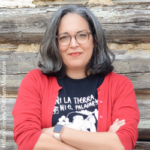
Edna Rodriguez became RAFI’s Executive Director in 2017 following six years as Come to the Table program Director, Development Director, and Director of Operations. Edna has grown the organization’s capacity by overhauling financial systems, diversifying income, and organizing cross-programmatic teams for greater collaboration and impact. In her current role, Edna led RAFI through a strategic planning process centered around equity, launched and grew the Farmers of Color Network, and extended programs to the U.S. Caribbean territories.
Edna is a strategic thinker with the consistent goal of funding the movement more equitably, a value which most recently resulted — in partnership with the National Sustainable Agriculture Coalition (NSAC) — in a pool of granting funds devoted specifically to BIPOC-led organizations for climate and equity-centered policy work. In addition to serving on NSAC’s Organizational Council, Edna serves as Treasurer of the National Family Farm Coalition’s Executive Committee. Born in Puerto Rico to Dominican parents, Edna was raised between The Hague, Netherlands, and Santo Domingo, Dominican Republic. Before RAFI, Edna served as Senior Program Officer at the Atlanta Women’s Foundation and Director of Educational and Career Services at the Latin American Association in Atlanta, GA.
Edna holds a B.A. in Economics with a concentration in Latin American Studies from Haverford College. Edna lives in Chapel Hill, NC, with her husband, three children, and their growing puppy.
Ciara Segura
EFOD Collaborative

As the EFOD Collaborative Research and Strategy Manager, Ciara leads the development of EFOD’s research and learning agenda, drawing on a wealth of community-driven evaluation strategies to communicate EFOD’s national impact. Prior to this, she was the Co-Executive Director of the nonprofit Mandela Partners, where she led several food-based community development projects throughout Oakland and the greater East Bay. Ciara’s background is a testament to thinking across disciplinary borders within the food system. Over the last decade, she has built experience in multiple areas–from regulatory compliance, sales and account management, participatory social science research, to organizational change management anchored in racial equity and transparency. She is committed to thoughtful, place-based advocacy for economic justice, and is most passionate about creating non-extractive economies that generate abundance and prosperity for local communities.
Originally from San Antonio, with multigenerational roots in the Rio Grande Valley of south Texas, Ciara is currently based in Oakland. She holds a BA in Feminist Studies from Stanford University and a MA in Geography from the University of Texas at Austin.
Tenzin Dolkar
McKnight Foundation

Tenzin Dolkar (Dolkar) is a program officer with the McKnight Foundation’s Midwest Climate & Energy program, where she works to shape and guide the trajectory of the Foundation’s climate initiatives, aligning McKnight’s equity goals. Prior to McKnight, Dolkar served as a climate advisor to the City of Minneapolis through a Natural Resources Defense Council partnership with Bloomberg Philanthropies American Cities Climate Challenge. From 2016 to 2018, Dolkar served as a senior policy advisor to Governor Mark Dayton on transportation and agriculture.
Dolkar holds a master’s degree in social work from the University of Minnesota and a bachelor’s degree in international studies with a minor in social work from the University of St. Thomas.
Paul Wolfe
Walton Family Foundation

Paul Wolfe joined the Walton Family Foundation in June 2018 as a program officer on the Environment team where he will work closely with the Mississippi River group on supply chain initiatives and Farm Bill policy. Before joining the foundation, Paul worked for the National Sustainable Agriculture Campaign focusing on crop insurance, agricultural conservation and climate change. He’s also worked on sustainability and food issues in the U.S. Senate for Senator Maria Cantwell.
Paul holds a J.D. from the Catholic University of America’s Columbus School of Law and a B.A. in political science from Gonzaga University.